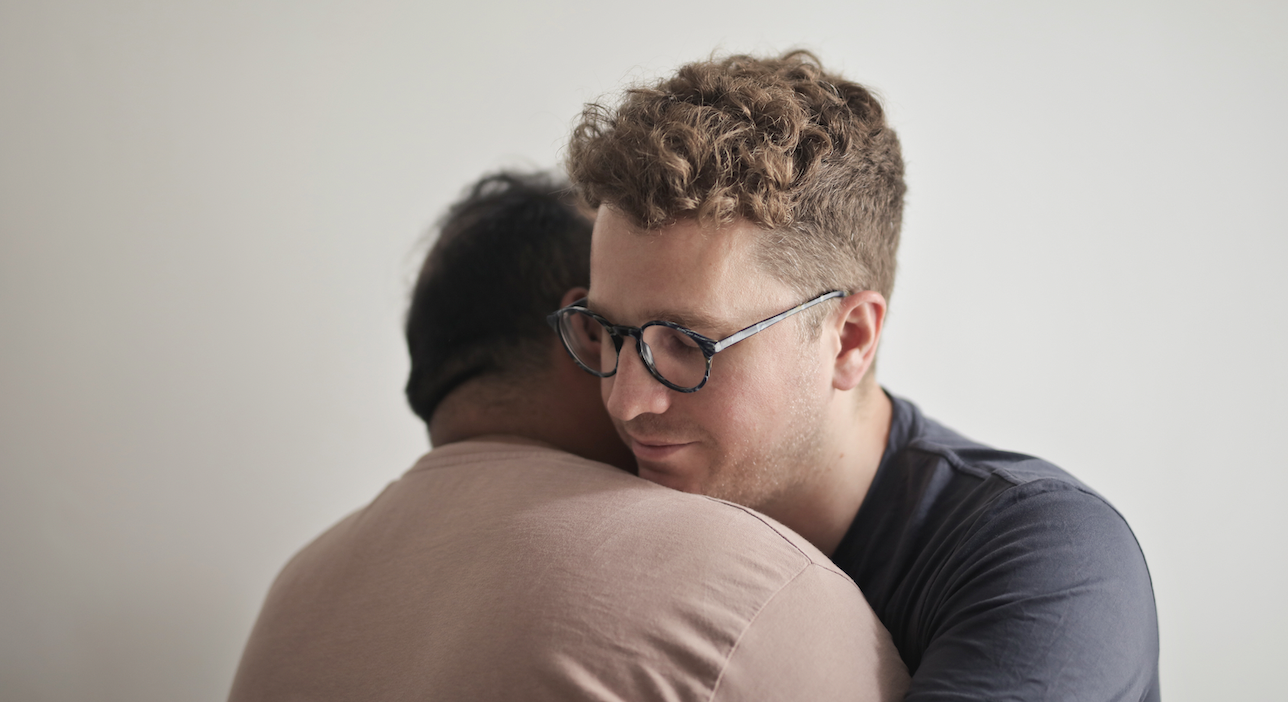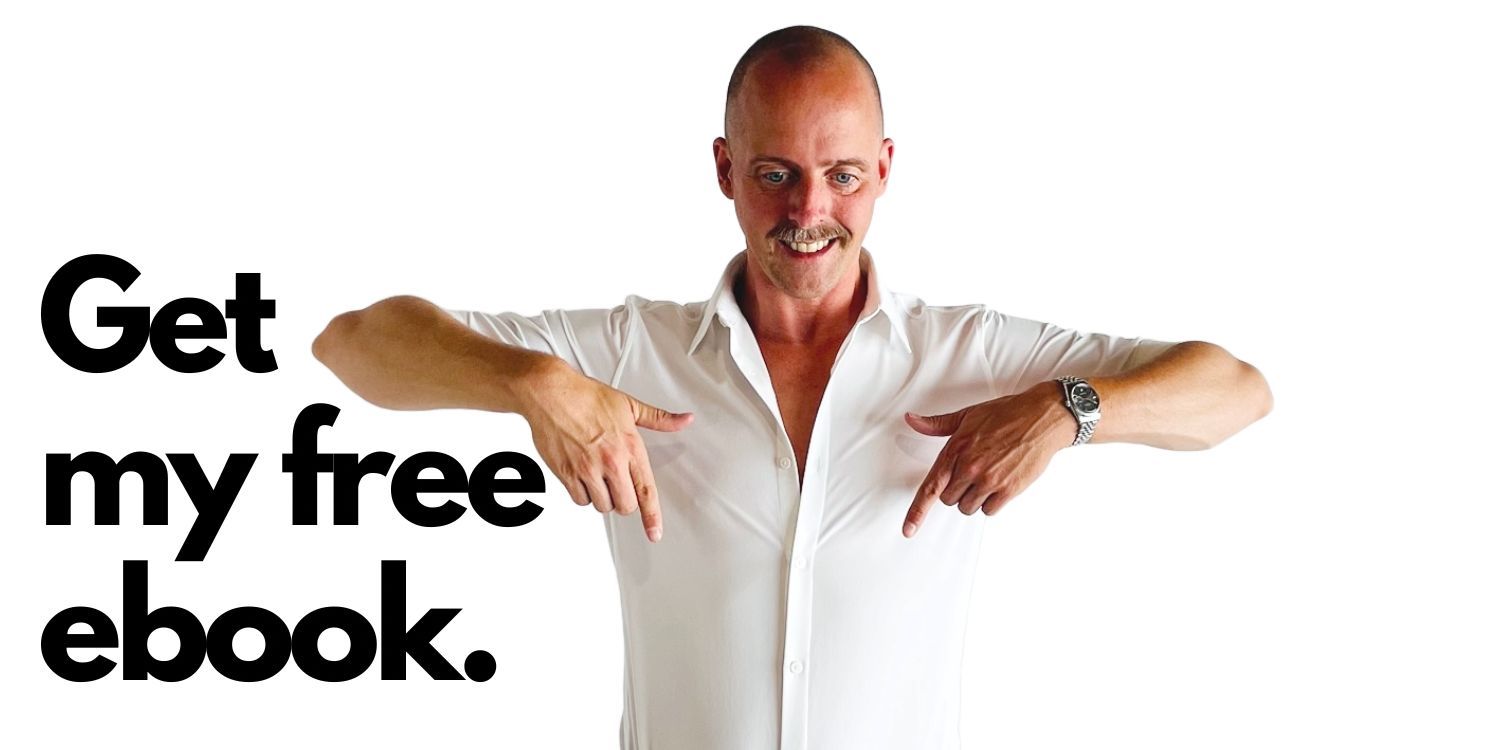Why Am I So Often Angry and-or Depressed?
Aug 17
/
Michael Federic Donatich
Growing up as a gay boy is not easy. Dealing with emotional issues as an adult is not easy. Many would assume that’s all those two facts have in common, but they also share an internal logic. Something we found ourselves pondering when young and in the closet, and now too often repeat to ourselves as adults struggling with anger & depression: “Deep down, I think something is wrong with me.”
Yes, everyone struggles with this thought at some point in their lives; but for gay men, this is a deeply planted seed that grew weeds we are still regularly finding in our mental garden. Growing up, it was a core belief surrounding our natural urges. As adults, it is now the mantra of our inner critic when we are struggling to avoid emotional triggers. Personally, I describe it as feeling that everyday life is walking through a mental minefield.
What if I told you this is not a coincidence? What if I told you that the conditions that made you feel this way growing up were directly connected to why you struggle with your emotions as an adult?

No matter the details of your upbringing, your awakening as a gay man was likely experienced as a long and drawn out process - particularly during a time when your brain was still developing. A great deal of stress was added to your everyday life without any support system. At a vulnerable age, that stress impacted every relationship you had: with your family, with your friends, with yourself. Whether coming out was “easy” or devastating, there was an impact, and when one’s life is impacted by something that is both unexpected and self-defining, the vulnerable age in which it happens makes it intrinsically traumatic.
As a gay man who works as a professional Surrogate Partner, for those in therapy for intimacy issues, a lot of my practice has been built on working with gay men trying to overcome different ways that their brains have told their bodies to do the opposite of what they want when getting close to another man. Whether the issue is uncontrollable panicking when making physical contact, or going numb upon being touched, or becoming disinterested once interest is shown, the same question was always asked: “Can you fix what’s wrong with me?”
It’s for that very reason that I struggle to write about this. Because the automatic answer to such a question is, of course, always, and should be:
There is NOTHING wrong with you!!!
Because there isn’t. Not with me, not with my clients, and not with you.
And yet, here I am, implying that being gay goes hand-in-hand with being traumatized. It goes against every message our community fights so hard to deliver to society. The goal is show that we are A-MAZING, because we are.
So we shout loudly -
There is nothing wrong with being gay!
Being Gay Is Natural!
Born this way!
But, do we always remember to leave room for ourselves to process just how wrong, unnatural, and deliberate other’s prejudice towards us has been?
While it was a lesbian who first introduced the term “minority stress” in 1981, it took two decades for researchers to provide study data that male sexual minorities face unique and hostile stressors, with a differentiation between external stressors, like verbal and/or physical harassment, and internal stressors, which originate from the internalization of society’s negative messages about homosexuality. Whether we stay in or come out of the closet, we have learned to inflict these stresses on ourselves.
How often do we truly give proper weight to the effects on the brain after years of bullying, years in the closet, years of fearing your authentic self? As Patricia DeYoung writes in 2015’s Chronic Shame: ”Long-term relational trauma leaves our psyches indelibly marked. Even with the best psychotherapy, we don’t just get over a lifetime of wondering whether we really matter to those closest to us or whether we can be enough for those to whom we do matter. We don’t radically reconfigure a personality build around anxious self-protection.”
In Alan Downs’ The Velvet Rage, the scientific findings of the biological effects of trauma on the hippocampal region of the brain are referenced before further elaborating: “Relationship trauma […] is usually a significantly different experience from that of trauma caused by life-threatening events. What is curious about the connect between these two different types of trauma is the commonality in basic symptoms.”
It’s these “basic symptoms” that make our comfort with the word trauma so important. Without it, you are searching for answers for your anger and depression that only scratch the surface of deeply embedded wounds.
Even now, as I write this, I am fighting the urge to further explain and therefore justify that which science already supports. I have my own inner critic, reminding me that there is always someone who can invalidate your experiences no matter how you present them.
But…you know where we learn that from? F-ing straight people. So F- that.
That’s what I love so much about the workshops Rene and I are currently running in the Netherlands - they are for gay men, from gay men. The complex answers to where our anger and depression come from are often nuanced, subtle, and often dismissed by heteronormative society; even from the most well-meaning therapists if they do not have a proper understanding of LGBT issues. But when Queer people come together to create a safe space to explore inner-most thoughts and feelings, emotional triggers can be discovered, shared, and understood. The resulting feeling of simply being seen, in and of itself, can be a great catalyst for healing.
It is the reason that my work has helped me think of a new mantra, one to replace the old ones:
Alone, we survived. Together, we thrive.
You read an article by Gay Men Coaching
How I can support you:
- Self Love Course - Learn step by step how to build a positive self image.
- Men's Group - Find out how other gay men deal with issues such as intimacy and sexuality.
- Coming-out program - If you could use some support before, during or after your coming-out.
- Individual coaching - If you want to improve the relationship with yourself or others.
And more about me and my approach:
Follow me on:

Get in touch
-
Geestbrugkade 32, 2281 CX Rijswijk, Netherlands
-
contact@reneluisman.nl
-
Chamber of Commerce number: 59693908
-
IBAN: NL49 KNAB 0259 9752 22
Join Our Newsletter
Get monthly updates on news, articles, tips and more.
Thank you!
Gay Men Coaching © 2014 - 2025

with 5 powerful tools to feel confident
As a bonus you will receive a monthly e-mail with tips & inspiration. You can easily unsubscribe at the bottom of every newsletter.
